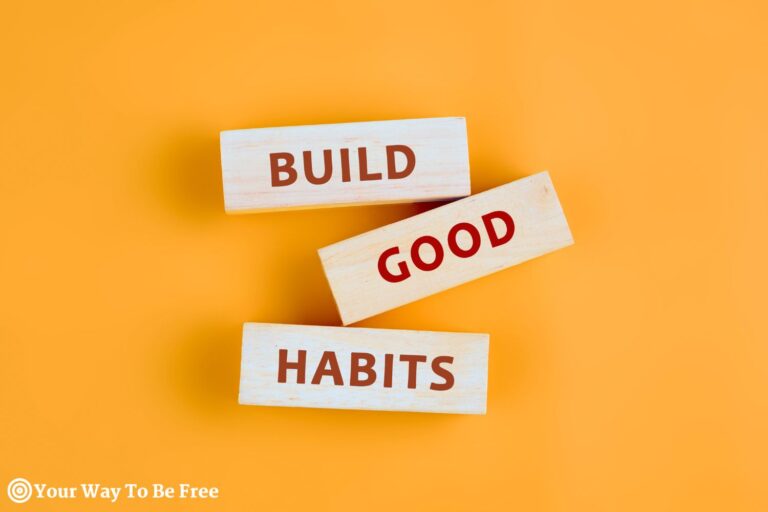Are you looking for ways to live a more sustainable lifestyle but unsure where to start?
We’ve all felt overwhelmed by the idea of making big changes, but adopting eco-friendly practices doesn’t have to be complicated. Simple changes in our daily habits can make a big difference.
In this article, we’ll explore practical and straightforward ways to reduce waste, conserve resources, and make eco-friendly choices in your daily activities. By making conscious choices in our daily routines, we can significantly reduce our environmental footprint and promote a healthier, more sustainable world for future generations.
Whether you’re a beginner or looking to refine your sustainable habits, these tips will guide you towards a more eco-friendly lifestyle.
Why Living Sustainably Matters
In our modern world, convenience often comes at a high cost. Many everyday products are made with toxic materials that harm both our health and the environment. From single-use plastics that pollute our oceans to chemical-laden household products, our current way of living has significant negative impacts.
The World Economic Forum’s 2023 report highlights that failing to address climate change and biodiversity loss poses severe global risks.
Living sustainably is a crucial step forward for both our planet and our well-being. By making conscious choices, we can significantly reduce our environmental footprint and promote a healthier, more sustainable world.
But how exactly does living sustainably benefit the planet and our health?
Benefits for the Planet
Living sustainably helps to minimize the environmental damage caused by our daily activities. Here are some key benefits:
- Reduce Waste: Recycling materials and using reusable items prevent harmful pollutants from entering our landfills and oceans. For instance, recycling one ton of paper can save 17 trees and 7,000 gallons of water.
- Conserve Resources: Saving water and energy reduces the strain on our natural ecosystems. Simple actions like fixing leaks and using energy-efficient appliances help maintain biodiversity and prevent habitat destruction.
- Combat Climate Change: By reducing greenhouse gas emissions through sustainable practices, we can mitigate the effects of climate change and protect vulnerable ecosystems.
- Promote Sustainable Farming: Sustainable farming practices protect soil health and promote a balanced ecosystem, ensuring that our agricultural methods do not deplete the land or harm the surrounding environments.
- Protect Wildlife: Reducing habitat destruction and pollution helps preserve biodiversity and protect endangered species.
Benefits for Our Health
Sustainable living also means choosing natural, non-toxic products, which can significantly improve our health. Here are some benefits:
- Reduce Exposure to Toxins: Using organic and locally sourced foods and natural beauty products reduces our exposure to harmful pesticides and chemicals. This promotes better nutrition and overall well-being by minimizing the intake of synthetic substances that can lead to health issues.
- Improve Air Quality: Natural cleaning products and personal care items help reduce the risk of allergies, respiratory issues, and other health problems associated with synthetic chemicals. By eliminating harsh chemicals from our homes, we create a healthier living environment.
- Support Immune System: Consuming organic foods and reducing exposure to harmful chemicals can strengthen our immune system, making us more resilient to illnesses and infections.
- Enhance Physical Health: Incorporating physical activities like biking or walking instead of driving can improve our fitness. These activities reduce carbon emissions and promote cardiovascular and physical health.
- Boost Mental Well-being: Living in a cleaner, greener environment can reduce stress and improve mental clarity, contributing to overall happiness. Access to green spaces and pollution reduction can have profound effects on mental health, helping to alleviate symptoms of anxiety and depression.
Simple Ways to Reduce Waste
Reducing waste is one of the most effective ways to live sustainably. Here are some easy tips to get started:
1. Use Reusable Bags and Containers
Say goodbye to single-use plastics by opting for reusable bags, containers, and water bottles. Plastic bags, bottles, and containers are major contributors to environmental pollution. By switching to reusable options, you can significantly reduce the amount of plastic waste you produce. Keep a set of reusable bags in your car or by your front door to remember them when you go shopping.
2. Practice Composting
Composting is a great way to reduce food waste and enrich your garden. Organic waste like fruit peels, vegetable scraps, and coffee grounds can be composted instead of being thrown away. Set up a compost bin in your backyard or use a countertop compost bin if you live in an apartment. Composting not only reduces waste but also provides valuable nutrients for your plants, enhancing soil quality and promoting healthier plant growth.
3. Avoid Single-Use Items
Avoid items like disposable cutlery, straws, and paper towels. Single-use items are convenient but contribute significantly to landfill waste. Instead, use washable alternatives such as metal cutlery, reusable straws, and cloth towels.These small changes can significantly reduce your household waste. Invest in a set of reusable items that you can carry with you, making it easy to avoid disposables when you’re out and about.
4. Embrace Sustainable Fashion
The fashion industry is one of the largest polluters in the world. By choosing sustainable fashion, you can reduce your environmental impact. Opt for clothing made from organic or recycled materials, and support brands that prioritize ethical production practices. Thrift shopping and clothing swaps are great ways to refresh your wardrobe without contributing to waste.
Efficient Resource Conservation Strategies
Conserving resources like water and energy is essential for a sustainable lifestyle. Here are some practical tips:
1. Save Water
Be mindful of your water usage. Simple actions like fixing leaks, taking shorter showers, and using a broom instead of a hose to clean driveways can save a significant amount of water. Installing water-efficient fixtures and appliances, can further reduce your consumption. Collecting rainwater for garden use and choosing native plants that require less watering can also contribute to water conservation.
2. Reduce Energy Usage
Lower your energy consumption by switching to LED bulbs, unplugging devices when not in use, and using energy-efficient appliances. Additionally, consider using a programmable thermostat to optimize your heating and cooling systems. Simple habits like turning off lights when you leave a room and washing clothes in cold water can make a big difference over time.
3. Opt for Renewable Energy
If possible, switch to renewable energy sources like solar or wind power. Many utility companies offer green energy plans that allow you to support renewable energy production. Installing solar panels on your home can also be a long-term investment in sustainable energy.
Making Smart Eco-Friendly Choices
Incorporating eco-friendly choices into your daily activities can make a big difference in both your life and the health of our planet. Here are some practical suggestions to get you started:
1. Choose Sustainable Products
When shopping, look for products made from sustainable materials or those that have eco-friendly certifications. Opt for items with minimal packaging or those made from recycled materials. Choose products that are designed to last longer and can be reused or repurposed, reducing the need for frequent replacements.
Supporting companies that prioritize sustainability and ethical practices also encourages more businesses to adopt eco-friendly practices. By choosing products that have a lower environmental impact, you contribute to reducing pollution and conserving resources.
2. Support Local and Organic Foods
Buying local and organic foods reduces the carbon footprint associated with transportation and promotes sustainable farming practices. Visit local farmers’ markets to support local producers. Organic farming avoids harmful pesticides and synthetic fertilizers, contributing to healthier soil and biodiversity.
Additionally, consuming seasonal produce can further reduce the environmental impact and provide fresher, more nutritious options. Supporting local farmers also helps to boost the local economy and create a sense of community.
3. Travel Responsibly
Reduce your carbon footprint by using public transportation, biking, or walking whenever possible. If you need to drive, consider carpooling with friends or colleagues to reduce the number of vehicles on the road. Public transportation and carpooling not only cut down on emissions but also decrease traffic congestion and fuel consumption.
For short trips, consider walking or biking, which are not only eco-friendly but also beneficial for your health. Additionally, you can look into car-sharing services or electric vehicles as more sustainable transportation options.
4. Invest in Quality Over Quantity
Adopt a mindset of buying fewer, higher-quality items that last longer. This applies to everything from clothing to household goods. Quality items may have a higher upfront cost, but they often prove to be more economical in the long run as they don’t need to be replaced as frequently.
This approach reduces waste and encourages more thoughtful consumption. By focusing on durability and longevity, you can minimize your environmental impact and reduce the amount of waste that ends up in landfills.
5. Engage in Community Efforts
Participate in community efforts to promote sustainability. This can include joining local clean-up drives, participating in recycling programs, or supporting local initiatives aimed at environmental conservation. By engaging in community efforts, you not only contribute to a healthier environment but also inspire others to adopt sustainable practices.
Conclusion
Living a sustainable lifestyle is all about making conscious choices and small changes that add up over time.
By reducing waste, conserving resources, and making eco-friendly choices, you can contribute to a healthier planet. Remember, every small action counts. Start incorporating these simple solutions into your daily routine and inspire others to join you on the journey toward sustainability.
Each step we take towards sustainable living not only benefits the environment but also improves our well-being, creating a harmonious balance between nature and human life. Together, we can build a more sustainable future for ourselves and the generations to come.
So, why not start today and make a positive impact on the world around you?







